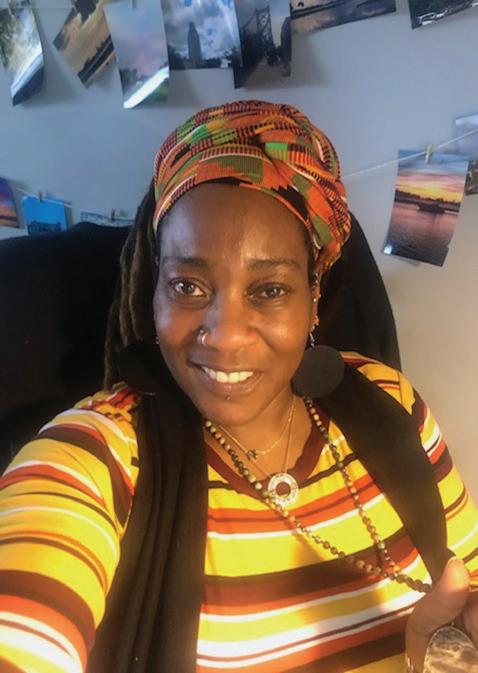
4 minute read
Self-Care
What It Takes to Be Resilient, and Healthy
Radical self-care is a useful tool – and helpful practice – for mental health professionals
Advertisement
ARTICLE BY VIRGINIA BROWN
In the summer of 2020, Carla Eugene found herself in an unusual position. The licensed professional clinical counselor and supervisor, and owner of Beyond the Surface Counseling was used to providing support for others during crises.
But the racial reckoning following the murder of George Floyd pushed Eugene to prioritize her own mental health.
“I was able to express radical self-care by saying no,” she says, “because I was dealing with my own experiences of stress and racial trauma.”
She took a step back and formed a new concept she uses with clients today: capacity and desire. “As a professional, you can have a desire to do things, but I didn’t have capacity for it, emotionally. That is what will stress you out.”
Radical self-care is prioritizing our health and wellness, even when it’s at odds with our self-perceptions. Deeper than self-care practices, like meditation and warm baths, the radical practice includes setting boundaries, saying no and asking for help.
“As Black women, we’ve been told we have to work twice as hard to get half as far,” says Eugene, who earned a master’s of science. “We are resilient, but we are not unbreakable. When we are not OK, part of radical self-care is to say that.”
When her professional clients, especially Black women, struggle with balance or “imposter syndrome” – feeling like they don’t belong in their advanced roles – Eugene works with affirmations like, “I am enough” and “I deserve to take space.” She has clients repeat these daily.
She also encourages role-play or having clients “try on” how they will say no to their boss, for example, or to a friend who’s constantly overstepping. Industry professionals can practice self-care, too. “Instead of getting into a competition about the latest and greatest things,” Eugene says, “it may be that we notice that they need to take space, instead of pushing each other harder.”

“When we are not OK,” says licensed therapist Carla Eugene, “part of radical self-care is to say that.”
PHOTO BY 3 MINDY DANELLE PHOTOGRAPHY
Radical self-care can also be used to combat systemic hurdles. A recent study in Community Mental Health Journal noted that, “Black communities face multiple stressors including racism, discrimination and navigating systems of oppression, all of which affect their mental health.”
Stressors that disproportionately affect Black communities include economic and educational inequality, mass incarceration and the killing of Black people by law enforcement. Activist and poet Audre Lorde wrote about self-care as a form of resistance in her 1988 essay collection “A Burst of Light.”
“Caring for myself is not self-indulgence, it is self-preservation, and that is an act of political warfare,” Lorde wrote. Refusing to stay in situations that don’t honor us is a form of radical self-care. When Nikole Hannah-Jones, the Pulitzer Prize-winning creator of the 1619 Project, was passed over for tenure at UNC Chapel Hill and, after later being offered the role, opted to go to Howard University instead, she also made a cultural statement, according to Eugene.
“It’s empowering for Black women to see other people do that,” she says. “It catches on.”
Creating community is helpful, too. In her role as a university counselor with a multicultural focus, Eugene encourages creating safe spaces for Black people.
At the University of Colorado in Boulder, she holds a group called Colorful Women for faculty and staff of color to discuss the difficulties of their highlevel positions. “There is power and connection, growth and validation in group support,” she says. “Retreating to our own communities refuels us.”
Virginia Brown is a freelance writer based in Columbus, Ohio. Her website is vbwrites.com.










